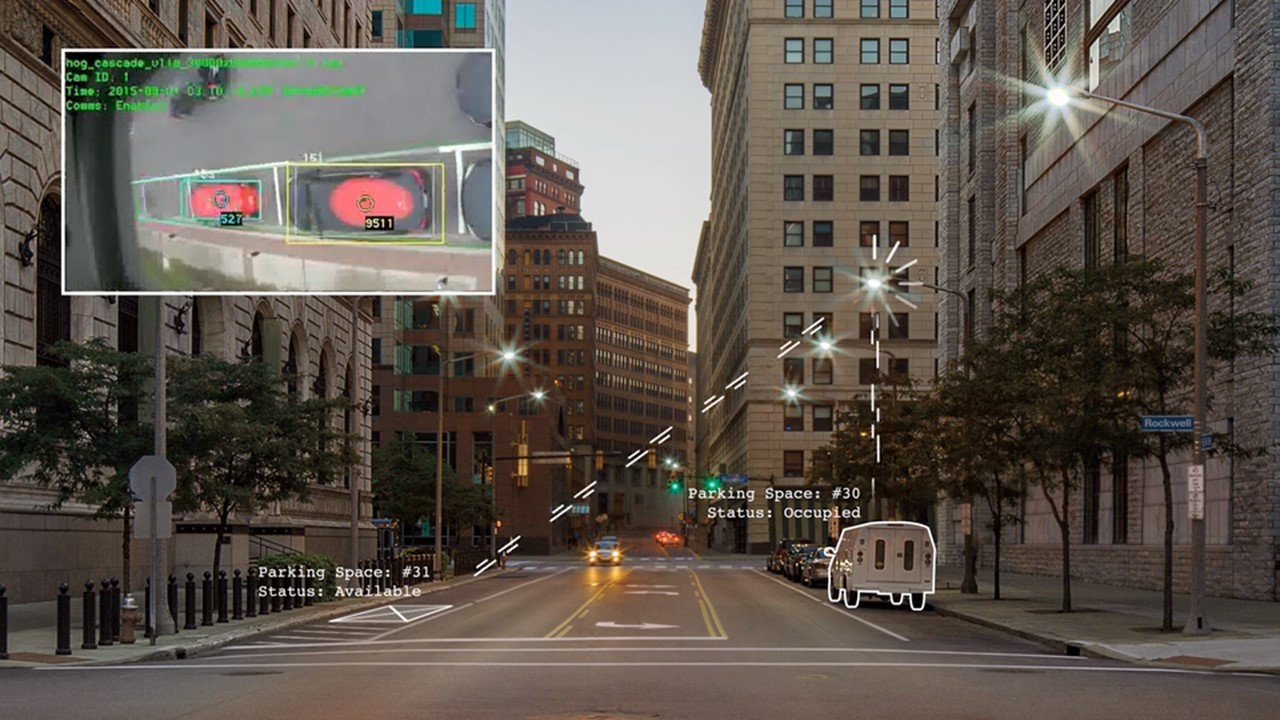
Photo: Current by GE (2018)
San Diego switches off streetlight sensors pending regulation
24 September 2020
by Sarah Wray
The City of San Diego has deactivated all sensor services, including cameras, on its 3,200 smart streetlights until a new ordinance is in place governing the programme.
“At this time, no data can be transmitted from the streetlights,” Gustavo Portela, a spokesperson for the Mayor’s Office, told Cities Today.
San Diego’s smart streetlight programme was announced in 2017, in partnership with GE Current, and touted as “the world’s largest smart city IoT platform”. The sensor installation was part of a broader project to upgrade thousands of streetlights to LED lighting. Through the initiative, more than 3,000 lights became part of the city’s data-gathering infrastructure with the addition of CityIQ nodes, including cameras and sensors. Ubicquia acquired CityIQ and the contract from GE Current earlier this year.
The total cost of the project was approximately US$30 million, to be paid off over thirteen years through the energy savings from the lighting. The sensors made up about US$10 million of the total, the city said.
As well as cost-savings, leaders aimed to use insights from the data captured to improve mobility, parking, public safety and to drive app-led innovation. However, the programme has drawn mounting criticism over privacy and surveillance concerns. It sparked further controversy recently relating to San Diego police accessing video footage from streetlights to help solve crimes, including homicides, sexual assaults and fatal accidents, as well as vandalism and looting during protests.
Before cutting off sensor services, “special and limited access to video/image data existed exclusively for the San Diego Police Department (SDPD),” Portela said. This allowed authorised personnel in SDPD to request access to specific video/images within a five-day period at the discretion of the Chief of Police for criminal investigations. Raw video and image data have not been accessible to general city staff or any members of the public, he said.
The city’s contract with Ubicquia expired in June and the company has turned the sensors off until a new deal is in place but it agreed to continue to fulfil police requests for video footage of serious or violent incidents.
But cameras were also switched off earlier this month, after a proposal to pass management of the streetlight programme over to the police was quickly scrapped.
“Police have used smart streetlights to hold violent criminals accountable. I support — and proposed — clear rules for this tech, but the City Council stalled on legislation. They won’t approve funds without legislation, so there’s no choice but to turn them off until Council acts,” Mayor Kevin Faulconer tweeted.
He added: “My staff proposed a surveillance policy to the City Council nine months ago. Council still hasn’t adopted one. We’ve seen killers caught, innocent people exonerated, and crimes solved. I’m calling on the Council to vote on surveillance legislation and this tech contract ASAP.”
Where next?
City Council rejected the initial draft policy, calling for a surveillance ordinance to cover more types of technologies and to carry more weight than a policy. The City Attorney reviewed the draft ordinance recently and requested further clarifications.
“The surveillance ordinance is going through the legal review process. It will go to City Council for approval this fall,” said a spokesperson for Council member Monica Montgomery Steppe, who is sponsoring the ordinances to regulate surveillance technology.
Ian Aaron, CEO of Ubicquia, told Cities Today: “We are committed to working with the City of San Diego to make the city smarter, safer and more connected, and we are in continuing dialogue with the city and city stakeholders to ensure the city’s needs are met.”
Making streetlights smart through the addition of sensors is a growing trend in the US and elsewhere. Northeast Group forecasts that US$1.4 billion will be invested in smart streetlighting in the US over the next decade, and US$600 million in additional smart city applications.
The situation in San Diego also comes as several other cities are beginning to introduce stronger oversight of data-gathering technologies, particularly in light of the COVID-19 pandemic, which has increased debate about these systems, and in the wake of the Black Lives Matter movement.
Portland City Council recently unanimously voted to pass two ordinances that prohibit the use of facial recognition technologies by both city departments and private companies. In July, inspired by related initiatives in cities such as San Francisco, Boston and Helsinki, London announced it is developing an Emerging Technologies Charter – a set of criteria that digital innovations should meet if they are deployed in the capital.
Aaron said: “We believe that the surveillance and privacy policy initiatives [San Diego] is working to put in place with input from the community, City Council and the police will serve as a best practice for cities of all sizes.
“Ubicquia is extremely proud of the work we are doing with more than 100 cities across the US and Latin America to make communities smarter, safer and more connected.” He did not specify which are using the CityIQ platform.












